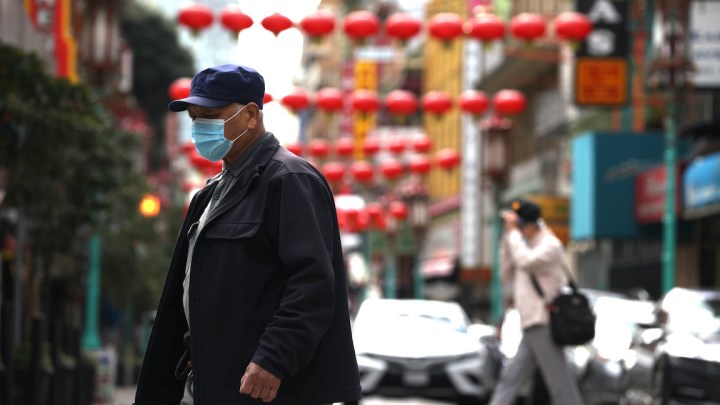
Asian Americans disproportionately hit by long-term unemployment, study says
Asian Americans disproportionately hit by long-term unemployment, study says

In January last year, when the United States just started hearing about a new virus spreading in China, Karen Chen, executive director of the Chinese Progressive Association, started getting calls from people losing their jobs in Boston’s Chinatown.
“Our former president was saying that [COVID-19 is] a Chinese virus. And that stigma immediately impacted a lot of the small businesses,” she said.
In her community, low-wage Asian American workers were being laid off before shutdowns even started. Many of them are immigrants who rely on jobs within their communities. Looking outside those communities means wading through an often unfamiliar system of resumes and Zoom interviews.
“And this is not in line with, you know, how actually business is done in the immigrant community,” Chen said.
There’s been a wave of violence and racism against Asian Americans during the pandemic, so much so that President Joe Biden signed an executive memorandum condemning it.
All this comes against a backdrop of tough economic times. According to new data from Pew Research, in the fourth quarter of last year, almost half of Asian Americans who were unemployed had been out of work for more than six months. The similar figure is about 35% for Black, white and Hispanic workers.
Experts say it’s in part due to the Asian American group’s large number of immigrants. About 60% of Asian Americans are immigrants, which is higher than other groups. According to the Migration Policy Institute, they tend to work in cities and industries that have been hit hard by the pandemic and shutdowns.
“Asians are concentrated in restaurants, retail and personal services like nail salons. They work in travel and leisure as porters, taxi drivers,” said Marlene Kim, a professor of economics at the University of Massachusetts Boston.
Those with higher-earning jobs, like in medicine and tech, are faring better, which means the wealth gap among Asian Americans, already the largest of any group, may get bigger.
“[Long-term unemployment] should have some effect on their future earnings, their future employability. That’s the scarring effect,” said Don Mar, professor emeritus of economics at San Francisco State University.
And he said if discrimination continues and U.S.-China relations don’t improve, the economic recovery for Asian Americans leans on much more than vaccines and business reopenings.
There’s a lot happening in the world. Through it all, Marketplace is here for you.
You rely on Marketplace to break down the world’s events and tell you how it affects you in a fact-based, approachable way. We rely on your financial support to keep making that possible.
Your donation today powers the independent journalism that you rely on. For just $5/month, you can help sustain Marketplace so we can keep reporting on the things that matter to you.


















